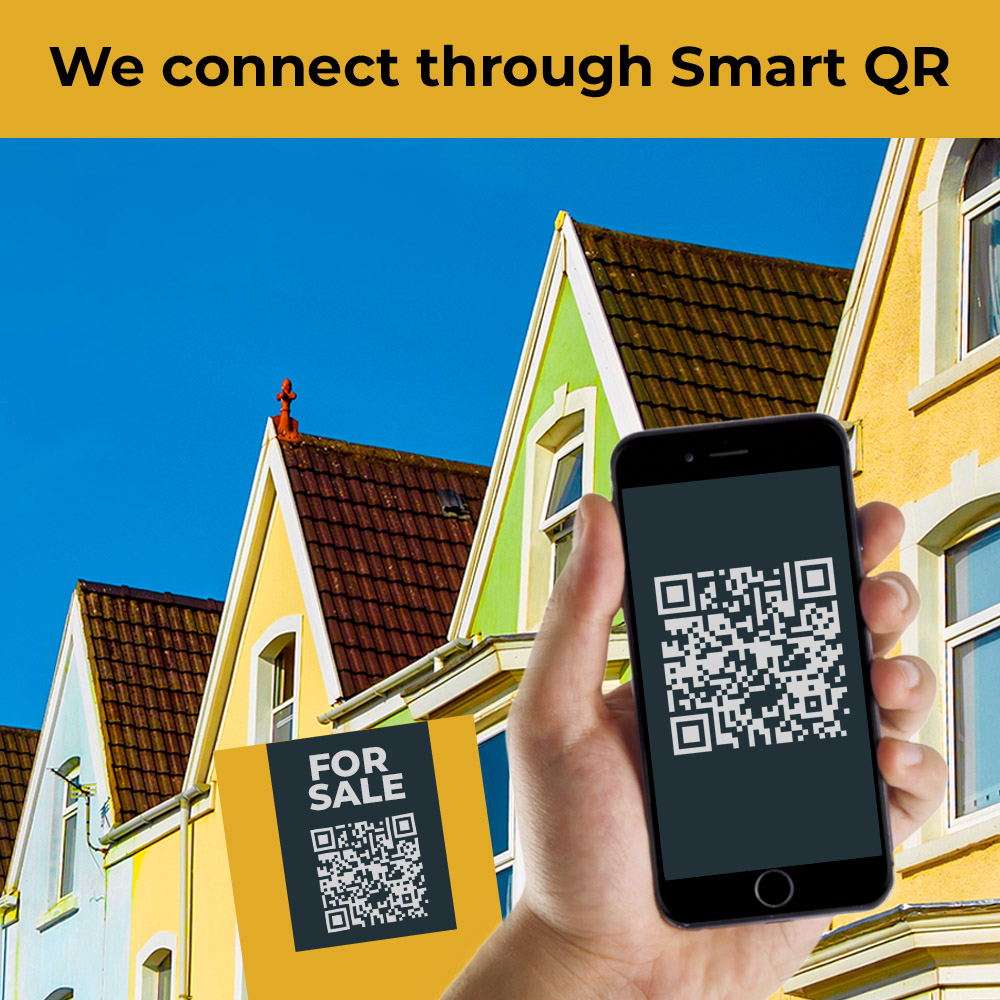
In the competitive world of real estate, estate agents are constantly seeking innovative ways to engage potential buyers and streamline the property viewing process. QR codes have emerged as a powerful tool for estate agents to enhance their marketing efforts, provide instant information, and create interactive experiences. Let's explore how estate agents can leverage QR codes to grow their business.
1. Property Listings and Virtual Tours
QR codes on "For Sale" signs or property windows can provide instant access to detailed listings and virtual tours.
Example: A QR code on a "For Sale" sign could lead to a 360-degree virtual tour of the property, allowing potential buyers to explore the home at any time, even when the agent isn't present. This can significantly increase interest and lead generation.
2. Neighborhood Information
QR codes can link to comprehensive information about the neighborhood, schools, and local amenities.
Example: A QR code in a property brochure could lead to a page detailing local schools' ratings, nearby parks, shopping centers, and public transportation options, helping potential buyers envision life in the area.
3. Instant Contact and Scheduling
QR codes can simplify the process of contacting the agent or scheduling a viewing.
Example: A QR code on a business card or property flyer could allow potential clients to instantly add the agent's contact information to their phone or schedule a property viewing through an online booking system.
4. Property History and Documentation
QR codes can provide quick access to a property's history, previous renovations, and important documentation.
Example: A QR code inside the property could link to a page detailing the home's renovation history, recent upgrades, and copies of relevant certificates or warranties.
5. Mortgage Calculators and Financing Information
QR codes can lead to mortgage calculators or financing options specific to the property.
Example: A QR code on a property information sheet could link to a mortgage calculator pre-filled with the property's price, allowing potential buyers to quickly estimate monthly payments based on different down payment amounts and interest rates.
6. Client Testimonials and Agent Credentials
QR codes can showcase client testimonials and the agent's credentials.
Example: A QR code on marketing materials could lead to a page featuring video testimonials from satisfied clients and information about the agent's sales record and certifications.
7. Interactive Property Maps
For larger properties or developments, QR codes can provide interactive maps.
Example: A QR code at the entrance of a new housing development could lead to an interactive map showing available lots, house designs, and pricing information.
8. Augmented Reality Experiences
QR codes can launch augmented reality (AR) experiences that allow potential buyers to visualize furniture placement or renovation possibilities.
Example: A QR code in an empty room could launch an AR app that allows users to virtually place furniture or visualize different paint colors and flooring options.
9. Property-Specific Social Media Content
QR codes can link to property-specific social media content or hashtags.
Example: A QR code could lead to an Instagram page featuring professional photos of the property and its surroundings, encouraging potential buyers to share and engage with the content.
10. Feedback and Survey Collection
QR codes can be used to collect feedback from property viewers.
Example: A QR code at the exit of an open house could lead to a quick survey, allowing the agent to gather valuable feedback and follow up with interested parties.
11. Language Options
For areas with diverse populations, QR codes can provide property information in multiple languages.
Example: A single QR code could allow users to choose their preferred language for viewing property details, expanding the potential buyer pool.
12. Market Reports and Property Valuations
QR codes can provide access to local market reports and estimated property valuations.
Example: A QR code in a listing presentation could link to up-to-date market reports and comparative property valuations, helping sellers understand pricing strategies.
Challenges and Considerations
While QR codes offer numerous benefits for estate agents, there are some challenges to consider:
1. Mobile Optimization: All linked content must be mobile-friendly for a seamless user experience.
2. Data Privacy: Ensure compliance with data protection regulations when collecting user information.
3. Regular Updates: Linked content should be regularly updated to ensure accuracy, especially for time-sensitive information like property availability.
4. Education: Some clients may need guidance on how to use QR codes effectively.
5. Integration with Existing Systems: Ensure QR code usage integrates smoothly with existing CRM and property management systems.
Conclusion
QR codes offer estate agents a powerful tool to enhance their marketing efforts, streamline information delivery, and create interactive experiences for potential buyers. By providing instant access to detailed property information, virtual tours, and useful tools, QR codes can significantly improve the house-hunting experience for clients while offering valuable data insights for agents.
As technology continues to evolve, we can expect to see even more innovative uses of QR codes in the real estate industry. The key to success lies in using QR codes strategically, always with the goal of adding genuine value to the client experience. When implemented thoughtfully, QR codes can transform the traditional property viewing process into a modern, tech-savvy journey that meets the expectations of today's digital-first home buyers, ultimately helping estate agents grow their business and stand out in a competitive market.




